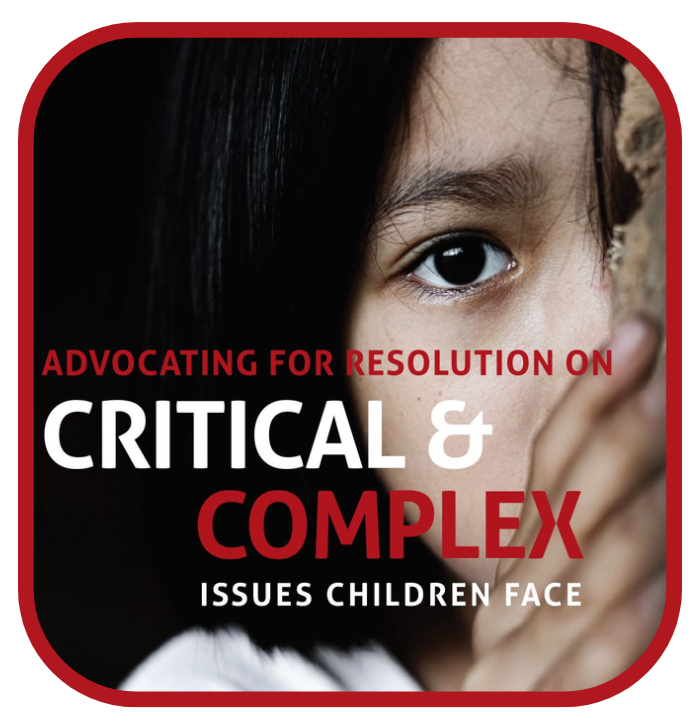 The Advocate for Children and Youth has the responsibility to become involved in advocacy respecting the rights, interests, and well-being of children and youth. Our office works on behalf of individual children and youth, and groups of children and youth receiving services from any ministry, agency of the government or publicly-funded health entity, including those who are in the care or custody of the Government of Saskatchewan. We advocate to ensure the child or youth’s rights are being upheld, that they are receiving services to which they are entitled, and that professionals working with the child or youth are meeting their obligations under the legislation, policy, and practices applicable within each ministry or agency. While the majority of advocacy services are provided to children and youth up to the age of 18, services are available for youth up to age 21 when they are receiving services pursuant to the Youth Criminal Justice Act, or Section 56 of The Child and Family Services Act.
The Advocate for Children and Youth has the responsibility to become involved in advocacy respecting the rights, interests, and well-being of children and youth. Our office works on behalf of individual children and youth, and groups of children and youth receiving services from any ministry, agency of the government or publicly-funded health entity, including those who are in the care or custody of the Government of Saskatchewan. We advocate to ensure the child or youth’s rights are being upheld, that they are receiving services to which they are entitled, and that professionals working with the child or youth are meeting their obligations under the legislation, policy, and practices applicable within each ministry or agency. While the majority of advocacy services are provided to children and youth up to the age of 18, services are available for youth up to age 21 when they are receiving services pursuant to the Youth Criminal Justice Act, or Section 56 of The Child and Family Services Act.
The Advocate for Children and Youth Act directs the Advocate to try and resolve, where appropriate, any matter using negotiation, conciliation, mediation, or other non-adversarial approaches. We may provide a continuum of advocacy services, ranging from strategies to assist in self-advocacy to full investigation of the concerns.
Our office has a mandate with the Ministries of Social Services, Health, Education, Justice, and Corrections, Policing & Public Safety, as well as First Nations’ Child and Family Services Agencies.
In reviewing a concern, we will consider whether or not the young person:
Our staff will also consider whether or not the final decision was made by an impartial decision-maker.
If concerns are outside the jurisdiction of our office, a Regional Advocate may provide information and self-advocacy strategies to assist the caller in having their concerns addressed and hopefully resolved. Examples of issues over which our office has no jurisdiction include: custody or access disputes, individual school boards, decisions of courts or Justices of the Peace, and programs under the jurisdiction of the Government of Canada.
Children and youth are encouraged to call on their own behalf, but anyone can call our office. Parents, extended family members, foster parents, social workers, professionals, Band officials, and other interested parties can call on behalf of children and youth.
Workers may also call our office seeking consultation to ensure they are providing all rights and entitlements to young clients.
All contacts with our office are confidential.
In the course of advocating for individual children and youth or groups of children and youth, an issue may be identified as systemic in nature when the number of children and youth presenting specific concerns increases significantly, or when the type of concern relates to deficiencies in legislation, policy or practice. Systemic issues may be further pursued by our office for systemic advocacy, review, or investigation.
The Act also enables the Advocate for Children and Youth to conduct research to improve the rights, interests, and well-being of children and youth.